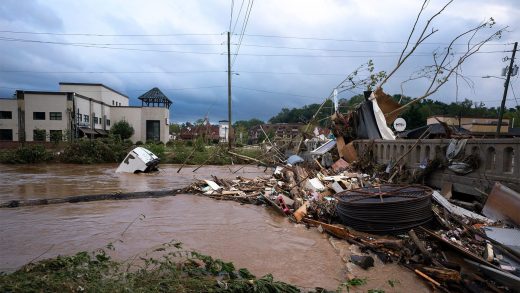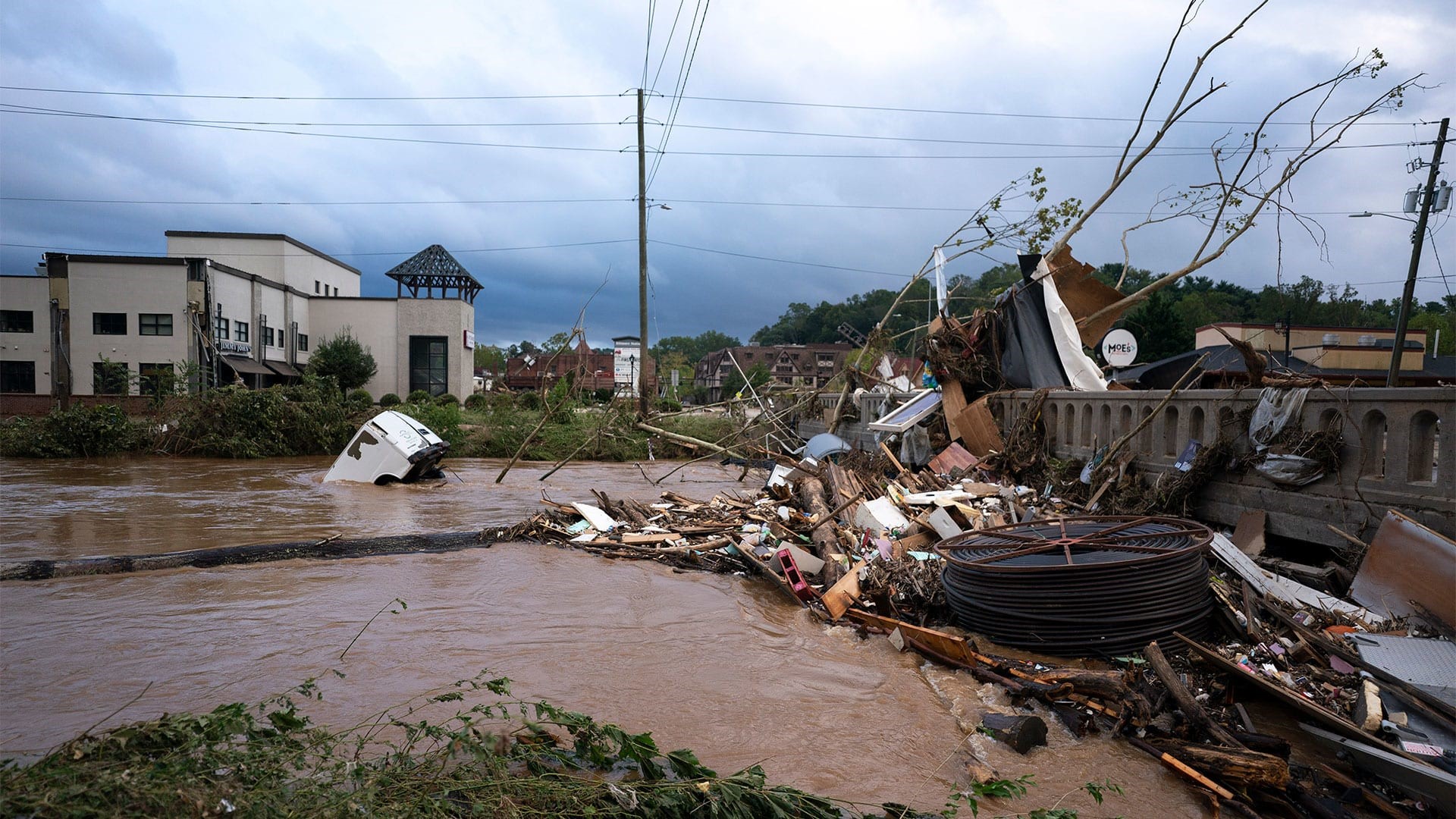How to help in Asheville: 4 things you can do right now for Hurricane Helene victims in hard-hit North Carolina
How to help in Asheville: 4 things you can do right now for Hurricane Helene victims in hard-hit North Carolina
The disaster in Asheville, a mountain town 300 miles from the coast, was unexpected for many, leaving residents without power, cell service, or water as the death toll rises.
BY Sarah Bregel
Days after Hurricane Helene tore through North Carolina, residents are facing immense challenges. Homes and businesses have been left torn apart and officials are struggling to get supplies to people in need. It’s a gargantuan task given roads and highways are still flooded, and some sections of highways going into the city have collapsed altogether.
The death toll from the storm has now reached triple digits across six states, with Asheville, North Carolina, seeing some of the most disastrous impacts. Reports say that as of Sunday, more than 600 people were still missing in Buncombe County, North Carolina. At least 30 in the area have died.
Meanwhile, many residents are without water, supplies, or cell service. And it could take until Friday to restore power to many areas, according to Duke Energy. (“Thousands of line workers are working tirelessly to assess damage and make repairs in response to the historic destruction from Helene,” the company said in a statement. “Due to the severity of damage and ongoing flooding in the western Carolinas, we anticipate a multiday restoration effort.”)
Asheville is a mountain town at least 300 miles from the coast, with an elevation of around 2,100 feet. The disaster there feels unexpected, like a harsh warning that if the vibrant city can end up decimated by a hurricane, then increasingly forceful storms, enabled by climate change, have the potential to submerge towns just about anywhere.
If you’re feeling helpless, here are some actions you can take today to help the residents of North Carolina and the hard-hit city of Asheville.
1. Donate
If you don’t live near enough to provide physical assistance to North Carolina residents, financial contributions are a great way to help. The United Way Helps NC Fund is dedicated to helping residents through this specific disaster. The funds will go directly toward helping individuals in desperate need of food and water get access to them as soon as possible.
Online donations can be made here, or checks can be sent to: United Way of NC, 1130 Kildaire Farm Rd, Suite 100, Cary, NC 27511.
Likewise, the Red Cross is a safe bet to make sure your funds are going directly to those in need. The Red Cross provides food, water, shelter, and recovery planning for those impacted by natural disasters.
Manna Food Bank, a Western North Carolina food bank dedicated to ending hunger, has been completely destroyed by the hurricane. In order for the nonprofit to get back up and running and serving the most vulnerable populations once again, it’s asking for donations, which can be made here.
2. Foster a pet
If you’re local to North Carolina or close enough to provide physical help, fostering an animal who needs a temporary home is needed now more than ever. Nearby shelters have been working with the Asheville Humane Society to transport animals to other nearby shelters where they will be safe. But if you’ve been thinking about fostering or adopting, now could be the time.
If you aren’t able to provide a home for a dog or cat, you can also donate to the Asheville Humane Society to help with food, supplies, and transportation of the animals during this crisis.
3. Drop off bottled water, socks, diapers, and more
Many North Carolina businesses are accepting items including water, clothing, toiletries, and diapers. Wooden Robot Brewery shared a list of the most-needed supplies, along with a list of drop-off locations, on Instagram here.
“Right now we’re urging for emergency donations—the waters, the baby needs, hydration packets, toiletries, new socks and underwear—the things you notice FIRST when they’re gone. Clothing is a must, but hydration and safety are first!” the brewery wrote in the post.
4. Tell people where to go for meals, or volunteer to deliver them
Given that many people in the hardest-hit areas don’t have internet access, word of mouth is extremely important right now. As organizations work together to provide meals, it’s still a struggle to get the word out. So, post online, or if you have access, spread the word to someone in an affected area.
Hot meals are being served by the Salvation Army. Feeding sites will be updated daily here.
Likewise, some local establishments are providing boxed meals for those in need. Donating to those restaurants and businesses would be massively helpful. If you’re local and can provide help, some places such as Indian Aroma Bistro in Hendersonville are asking for volunteers to help with deliveries.
ABOUT THE AUTHOR
(1)



